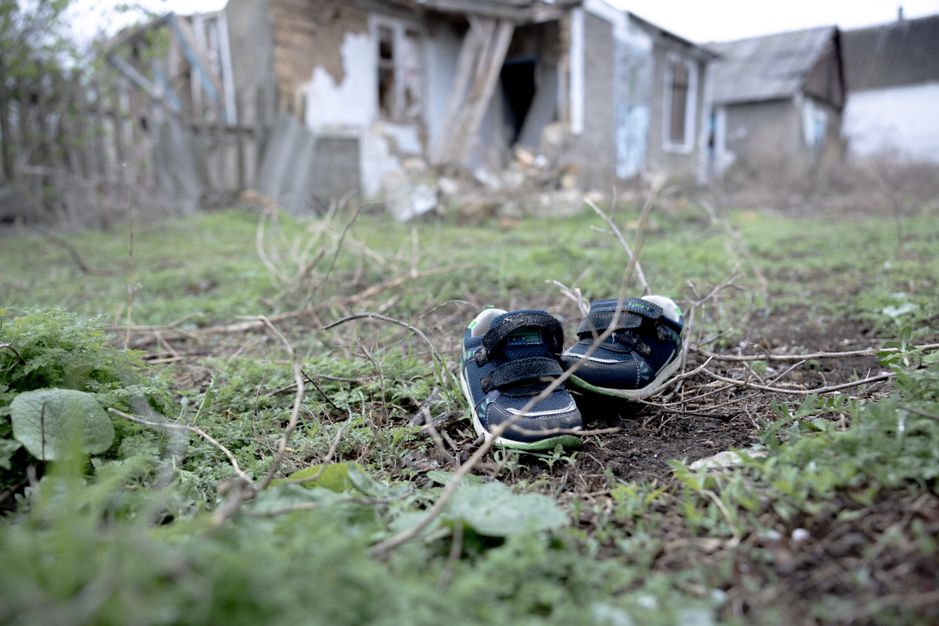DCA-NCA Ukraine
In the empty, cold halls of the school, children no longer run through the corridors. This is the Novopetrivka boarding school in Mykolaiv oblast, which once provided education and care for more than 75 children — 15 of whom were orphans or deprived of parental care. During the Russian occupation, the children were taken to Crimea along with the school’s then-director.
In response to this painful experience, a cycle of psychosocial support trainings was held at the school in 2024 by DCA-NCA financed by NORAD. From October to December, ten sessions took place, each focused on a specific topic: understanding mental health, the nature of stress, emotional burnout, personal boundaries, and psychological survival strategies. Every session included practical tools that participants could apply in their everyday lives.

“I was finally able to sleep”
“We started working through those traumatic experiences. Talking about them helped reduce. The breathing techniques helped me sleep again. For the first time, I realized I deserved care too,” Tetiana says.
The acting school director of the school, Tetiana Pochtarenko, recounts the first days of the full-scale invasion when Russian troops swiftly occupied the village. In those early days, teachers and children remained at the school, as it was considered the safest place to be.

“These children were orphans. Most of them had nowhere else to go — we became their family. They didn’t even understand what was happening. We had no water, no food, nothing. But the children, they didn’t know that. We gave them candy, and they thought everything was fine,”Tetiana Pochtarenko says.
Thanks to the efforts of Ukrainian and international organizations, volunteers, and human rights defenders, some children were eventually returned to Ukraine through Georgia, under the guise of a recreational trip. In 2024, Tetiana herself traveled to Georgia to bring five children back. The journey was difficult: the children were held at the airport, slept in a foreign country, and required urgent help from the Polish embassy. But it worked.
“It wasn’t easy, but I’m incredibly happy that we were able to return some of the children to Ukraine,” Tetiana says.
The trauma of the occupation left lasting wounds. According to the school director, eight villagers were tortured to death. Among them was Tetiana’s brother-in-law, Vitalii. She recalls how he was returned to neighbors — beaten, broken, barely alive — only to be taken again and later found dead in a ditch after the village was liberated in November 2022.
“We searched everywhere — all the basements, the town. He was nowhere to be found. And after the liberation, one of our locals went out past the village. Far beyond the village, in a ditch with water, he found three bodies. Two young men, and the third was our Vitalii.”Tetiana says.
When Tetiana returned to the school that winter, it was cold and had no electricity. But life slowly resumed — and healing began.

“We patched up our damaged homes together”
Other teachers shared similar stories. Oksana, a teacher of labor training and floriculture. When the shelling started, she and her neighbors took refuge in the basement. Oksana stayed in the village for the entire six months of the occupation, an experience she describes as deeply traumatic. She recalls that there was a catastrophic shortage of food, and the only thing that helped was the fact that they were in the village and had various stocks or grains of wheat.

“We patched up our damaged homes together. We survived together. We had to grind wheat — the kind we usually fed to chickens — in a coffee grinder. That’s what we made porridge from, just to keep from going hungry,” Oksana remembers.
On the day of liberation, 9 November, Oksana, and her neighbors, could hardly believe it was real. They cried and couldn’t believe the nightmare was finally over.

Oksana and other residents of Novopetrivka began attending psychological support workshops from DCA-NCA — an essential step toward emotional recovery.
Oksana says.
“These sessions helped us immensely. We learned to understand one another better, to talk about our feelings and fears. The psychologists gave us the tools to cope with the stress and find the strength to move forward, I felt the relief myself”,
After ten sessions, the school staff became more open, supportive, and emotionally resilient. Psychosocial support turned pain into strength.
Today, the Novopetrivka school continues to operate online, teaching 60 children. The village is slowly coming back to life — not just physically, but emotionally too.



